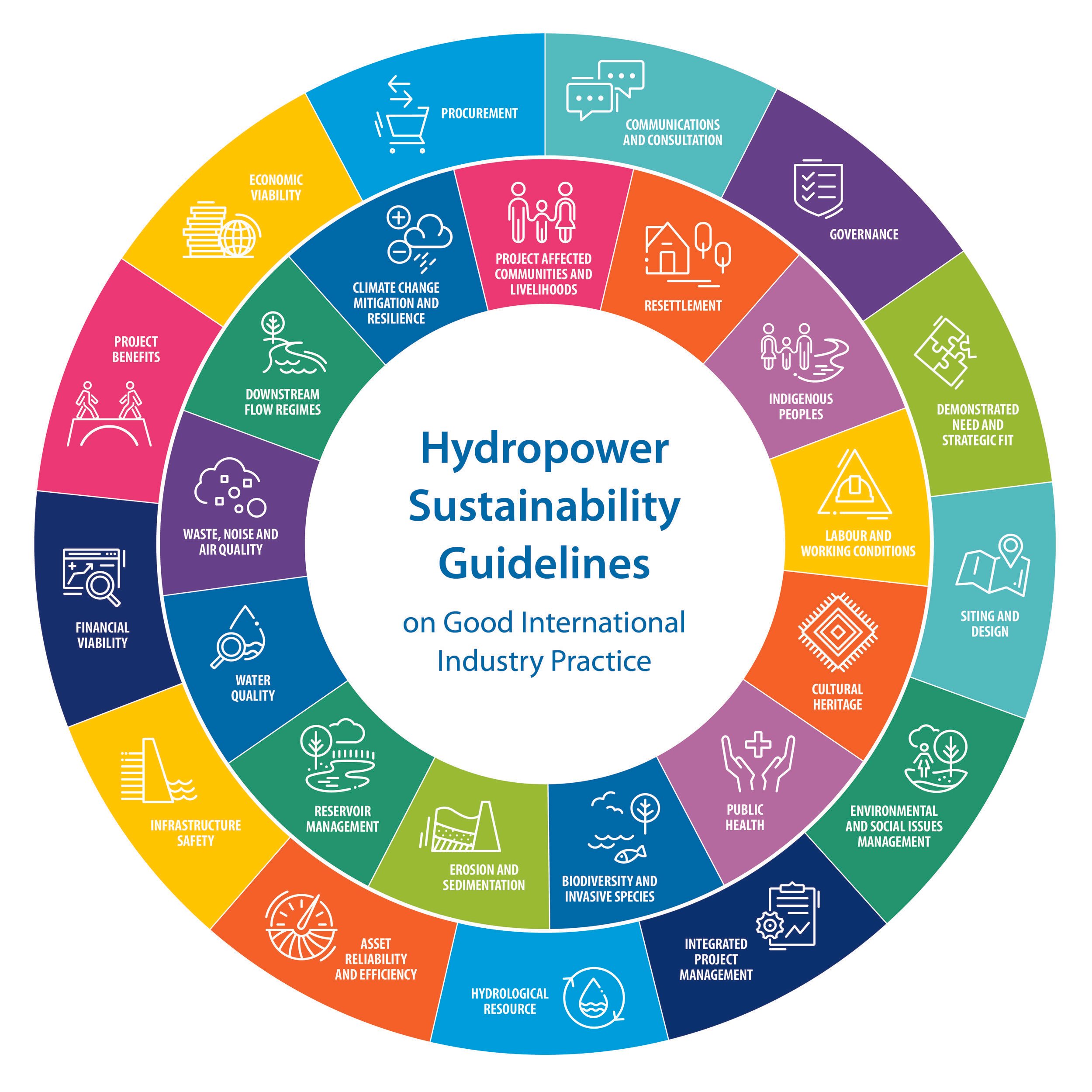Sustainability guidelines define good practice for hydropower
New sustainability guidelines released today present a definition of the processes and outcomes relating to good international practice in the hydropower sector.
The Hydropower Sustainability Guidelines on Good International Industry Practice are a reference document to meet the expectations of lenders, regulators, and consumers.
Derived through consultation with a broad coalition of industry, civil society, governments and financial institutions, the set of 26 guidelines define expected sustainability performance around a range of environmental, social, technical and governance topics relevant to hydropower activities.
The guidelines are governed by the Hydropower Sustainability Assessment Council, whose 100 members include representatives of organisations such as the World Bank Group, the Inter-American Investment Corporation, Women for Water Partnership, WWF, the International Union for Conservation of Nature, the Norwegian Agency for Development, the Swiss State Secretariat for Economic Affairs and the International Hydropower Association (IHA).
Richard Taylor, Chief Executive of IHA, said: “The publication of the guidelines is a major landmark for the hydropower sector. They are a much-needed reference document, as they set out what constitutes good practice in processes and outcomes for sustainable hydropower.”
Roger Gill, Chair of the Council’s governance committee, said the guidelines should “demystify what is required to advance sustainable hydropower”. “Use of the guidelines on good international industry practice will enable hydropower developers and operators across the world to step up to ensure their projects can meet the needs and expectations of the communities they serve,” he stated.
Aligned with standards developed by the World Bank, International Finance Corporation, and the Equator Principles group of banks, the guidelines are hydropower-specific and designed to support assessments of project performance using the Council’s internationally recognised Hydropower Sustainability Assessment Protocol and ESG Gap Analysis Tool.
Developed for a range of stages in the planning, development and operation of a hydropower project, compliance with each guideline can be specified in commercial contracts between financiers and developers, and developers and contractors.
Lesha Witmer, Advocacy Lead for the NGO Women for Water Partnership, a member of the Council’s governance committee, said the new sustainability guidelines are “an important tool” for developers as well as governments, environmental organisations and local communities. “It is extremely important to have good guidance and examples on how to sustainably use water for energy - and energy for water - adhering to implementation of Sustainable Development Goals 6 and 7. The guidelines on good practice are a contribution to do just that.”
Eduard Wojczynski, a specialist consultant on hydropower sustainability, said: “The sustainability guidelines are a well-articulated and concise set of principles which will be useful in both developing and developed countries. They are important in that they will assist in ensuring hydropower is developed and operated in a sustainable manner and in enhancing societal acceptance of hydropower.”
Download the Hydropower Sustainability Guidelines at hydrosustainability.org/guidelines


